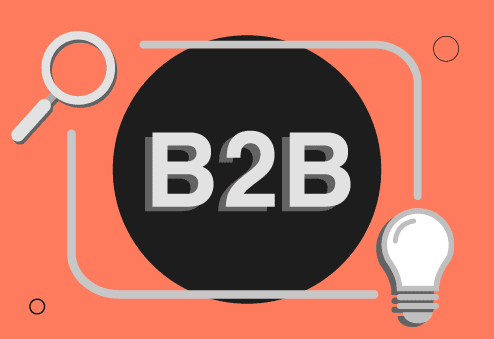An independent CPA is running the numbers late at night: not for a client, but for their own Facebook ad campaign. The numbers aren’t just adding up, they’re telling a story. Click-through rates, conversion funnels, cost-per-lead projections—this is where spreadsheet savvy meets strategic storytelling.
What once seemed like opposite ends of the career spectrum (accounting and marketing) are now converging most unexpectedly. While others chase the next big creative trend, accountants are quietly dominating the back end of digital campaigns with the precision of a forensic audit. They’re not just budgeting ads; they’re optimizing lifetime customer value and mapping out multi-touch attribution paths with surgical clarity.
If you’ve ever dismissed marketing as too “fluffy” or far from your financial comfort zone, think again. Accounting pros already have what most marketers are still trying to learn: data discipline, an eye for efficiency, and the ability to connect dollars to decisions. That’s why they’re thriving on platforms like Google Analytics, mastering SEO KPIs, and consulting on ROI strategies that actually make sense.
Read on to find out more.
Why Accountants Are Built for This Era of Marketing
Modern marketing isn’t about guessing anymore. It’s about performance. Click-through rates, acquisition costs, and customer lifetime value. Accountants have been living in those metrics long before most marketers had to.
Their strengths play directly into the current needs of digital strategy:
Performance Analytics
Marketers today are expected to know where every dollar goes. Accountants thrive in this environment. They’ve been tracking outcomes and chasing efficiencies for years. Many businesses now rely on outsourced accounting services to keep a clear view of their spending and results.
Budget Discipline
- Ad spend
- Influencer deals
- Software subscriptions
- Search engine marketing fees
- Affiliate commission payouts
It all adds up. Accountants manage these costs like they would any operating budget: with precision and foresight. When managing these expenses, staying on top of incoming payments is crucial. Accounts Receivable Collections Software helps track invoices, monitor due dates, and ensure timely cash flow.
Regulatory Compliance
Data privacy laws like GDPR and CCPA are changing how marketers collect and store data. Accountants already operate in regulated environments and understand how to track, report, and protect sensitive information. For businesses seeking flexible compliance solutions, exploring Onetrust alternatives can help meet regulatory requirements without locking into a single platform.
Strategic Forecasting
Where creative marketers focus on ideas, accountants focus on outcomes. They instinctively:
- Build forecasts
- Model risk
- Create contingency plans
- Track performance metrics over time
- Tie campaign KPIs to financial goals
- Stress-test budgets against multiple market scenarios
From Licensure to Lead Generation
Accountants entering marketing often lean on the discipline and credibility earned through certification. Understanding accountant certification requirements is more than an academic exercise. It’s foundational training in ethics, analysis, and long-range planning.
To pivot into digital marketing, many accounting professionals start by upskilling in:
- Google Ads and Analytics
- HubSpot and Salesforce CRM systems
- SEO tools like SEMrush or Ahrefs
- Funnel mapping and customer journey modeling
- Technical writing and compliance copy for content marketing
The bridge isn’t long. It just requires direction, and accountants already come with the stamina and logic to walk it.
Where Accountants Fit Naturally in Digital Strategy
The marketing world doesn’t lack ideas. It lacks marketers who can measure what works, replicate it, and explain it to the CFO in plain language. That’s exactly what accountants are trained to do.
SEO for Regulated Niches
When writing for industries like finance or insurance, accuracy and trust matter more than puns. Accountants can oversee SEO strategies that align with compliance standards and search behavior.
Campaign Budgeting and Paid Media
Managing Google Ads or LinkedIn Campaigns requires clear objectives, tight budgets, and rigorous testing. Accounting pros already think this way. To streamline these processes further, integrating financial workflow automation can help track ad spend, approvals, and reporting more efficiently.
Conversion Rate Optimization
- A/B testing
- Behavior analytics
- Multivariate testing
- Attribution modeling
- Click-through rate segmentation
- Funnel drop-off tracking
It is more science than art. Accountants bring structure and patience to conversion experiments that others abandon too quickly.
Marketing Analytics and Attribution
From building dashboards to defining lead stages, accountants ensure clean, reliable data flows that support strategic decision-making. Businesses often consider a Sparkroom Alternative to achieve better lead tracking and enhanced marketing results.
To go deeper into these skills, many tap into tools like Google’s Advanced Analytics courses that teach performance measurement with real marketing datasets. For number-driven minds, these courses aren’t just useful, they’re intuitive.
Tools They Pick Up Quickly
Accountants may be new to Click Funnels or retargeting, but they learn fast—especially when a tool revolves around metrics.
GA4
The event-driven model of Google Analytics 4 is complex, but logical. Once accountants learn to tag user actions and define conversions, they build robust reports that others struggle to interpret.
Looker Studio & Power BI
Visualization tools feel like natural extensions of financial modeling software. With these, accountants can turn dense ad data into dashboards that clients and execs can act on.
CRM and Email Marketing Tools
Platforms require a logic-based approach to workflows and segmentation. Accountants don’t just understand automation logic—they improve it.
Excel as a Marketing Engine
Marketing teams often underestimate what Excel can do. From forecasting keyword ROI to mapping user behavior patterns, accounting pros use it like a second brain.
What feels overwhelming to others feels manageable to them because the architecture of marketing data mirrors the structured systems they already know. Using tools that convert image to Excel makes it easy to pull structured data from visuals and incorporate it into spreadsheets.
Real-World Applications That Drive Results
Financial Copy That Converts
A B2B SaaS product for invoice automation? A new wealth management tool? These campaigns succeed when written with accuracy and authority. Using well-designed invoice templates helps businesses maintain consistency and professionalism across their financial documents. They also provide a strong visual framework that supports the credibility and clarity accountants value when creating content. Accountants make excellent content strategists for finance-adjacent brands. For accountants supporting small businesses or freelancers with their marketing efforts, professionalism and clarity are especially important—even down to the invoices they send. Creating branded, client-ready invoices doesn’t have to require advanced accounting software; user-friendly tools like Invoice Simple offer a wide range of free Microsoft Word invoice examples. These customizable templates allow financial professionals and marketing consultants alike to bill clients efficiently while maintaining a polished, consistent brand image in every interaction. For even greater efficiency and organization, digital accounting software can automate invoicing, track payments, and manage expenses, helping professionals focus more on their core work.
Lead Scoring and Funnel Refinement
Marketing isn’t about raw leads anymore: it’s about qualified ones. Accountants use behavior signals and data models to score leads and refine nurture paths.
Attribution Model Design
Was it the email or the second Instagram retargeting ad that converted? Attribution modeling gets tricky fast. Accountants can build models that reflect business reality, not just platform biases.
PPC Return Optimization
Knowing when to scale a campaign or shift targeting comes down to monitoring spend like a P&L statement. Accountants see every metric through a financial lens, which leads to better decisions.
Four Traits That Give Them Staying Power
Accountants bring more than just hard skills. Their approach to problem-solving gives them staying power in marketing teams under pressure to perform. At the same time, having familiarity with accounting software allows them to analyze budgets and campaign performance more effectively.
Structured Thinking
When there’s chaos in the data, they see patterns. When there’s noise in a campaign, they listen for a signal.
Process Obsession
They document. They test. They improve. This makes them invaluable in startups where systems are still forming: or in enterprise settings where mistakes cost big money.
Cross-Functional Communication
Because they’ve worked closely with finance, operations, and compliance, they can speak to more departments than many marketers can. That makes them ideal liaisons during cross-functional campaigns.
Accountability Mindset
They don’t need someone to remind them to track ROI. They built their careers on accountability, and they expect marketing to deliver results, not just reach.
For Firms: Why Hire a Financial Mind for Your Marketing Team
If your brand has ever struggled with vague reporting, misaligned budgets, or bloated marketing tools, an accountant-turned-marketer might be the fix.
They handle attribution chaos
When every team points to a different touchpoint as the conversion trigger, accountant-marketers step in with structured frameworks.
They track cross-channel behavior, assign weighted value based on real influence, and bring clarity to messy, multi-touch journeys. Their approach replaces guesswork with grounded logic, helping teams make smarter allocation decisions.
They bring sanity to conversations about what really drove conversions
Instead of letting sales, social, or paid media claim all the credit, they zoom out. They scrutinize first-click, last-click, and assisted conversions through a lens of data integrity. Their insight ensures that decision-makers focus on what’s replicable and scalable.
They justify budget increases
They don’t just ask for a bigger ad spend: they tie every dollar to outcomes. Whether it’s:
- A lift in qualified leads
- a drop in acquisition cost
- A stronger ROI on retargeting
- Lower cost-per-click in high-intent segments
- Higher lifetime value projections from optimized targeting
They come armed with numbers that defend the investment.
They catch inefficiencies fast
Redundant tools, broken funnels, and misaligned KPIs don’t last long under their watch. They audit martech stacks like accountants audit financials.
If two platforms overlap, one goes. If a conversion path leaks users, it gets patched. And if a campaign’s metrics don’t ladder up to business goals, it’s retooled or retired.
They help scale sustainably
Their instinct is to systematize. That’s exactly what you want when scaling content, automation, or paid acquisition efforts. Instead of throwing more dollars or headcount at growth, they build repeatable processes that don’t crumble under pressure.
They document workflows, standardize reporting, and implement automation with an eye on ROI, not novelty. When others rush to launch, they’re stress-testing for scalability. Whether it’s content distribution, CRM logic, or media buying strategies, they make sure each piece works not just now, but at 10x the volume. To support these scalable processes, integrating Stepper can automate complex workflows, ensuring consistency and efficiency even as volume increases.
For Accountants: Making the Move Into Marketing
If you’re an accountant considering this leap, here’s your roadmap:
- Choose an industry or audience you understand well
- Pick two core skill areas to master (analytics and SEO, or content and CRM, for example)
- Take small real-world projects—freelance if needed—to apply what you learn
- Position yourself as someone who brings clarity, not just creativity
Soon enough, your value won’t just be in what you know—it’ll be in how you think. That’s what modern marketing teams need most.
Strategy Built on Substance
Marketing can’t just be about storytelling anymore. It has to be about systems that work. That’s why the accountant-marketer hybrid isn’t just a one-off success story.
- They look at campaigns and ask: “Is it profitable?”
- They analyze audiences and wonder: “Are we allocating effort where it counts?”
- They review reports and demand: “What do we do next?”
- They monitor CAC and LTV and ask: “Are we scaling efficiently?”
- They audit funnels and wonder: “Where are we bleeding budget?”
- They dissect churn and retention and think: “What’s the financial story behind the trend?”
And in a world flooded with impressions, shares, and vanity metrics, those are the questions that actually matter.




